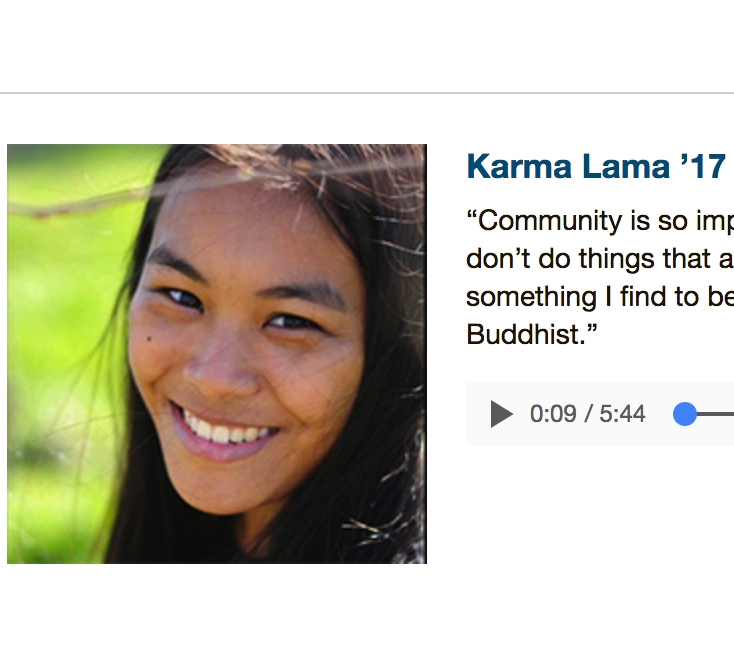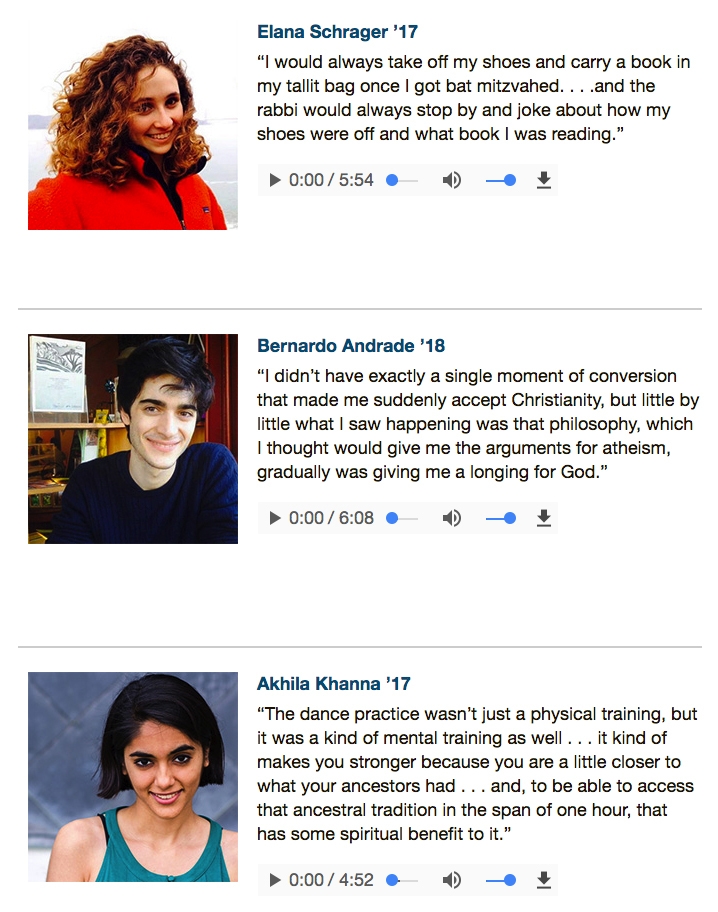In New Series, Students Describe Personal Religious Journeys

MIDDLEBURY, Vt. – A new website created by the Scott Center for Spiritual and Religious Life offers a glimpse into the varied religious lives of Middlebury students. The site, titled “The Varieties of Religious Experience,” provides short journalistic audio narratives by students from a range of backgrounds.
The nine narratives were produced by Matthew Blake ’17, one of Middlebury’s new Leadership in Thought fellows. Blake, who is also a Fellow in Narrative Journalism with Scholar-in-Residence Sue Halpern, saw an opportunity to enrich campus converstaions about diversity with a religion component.
Blake says that as a Thought Leadership fellow–a College program led by alumna mentor Dena Simmons ’05–he learned to be wary of single-story narratives about groups of people.
“I wanted to bring the skills, lessons, and perspectives from these two fellowships to a project that would give students a platform to share their stories about religious life in order to breakdown simplified understandings of religious traditions,” said Blake.
In a series of audio clips, generally 5-6 minutes in length, students give candid, thoughtful assessments of their religious experience on campus, which are sometimes funny and often poignant.
“I didn’t have exactly a single moment of conversion that made me suddenly accept Christianity,” says Bernardo Andrade ’18 in his clip, “but little by little what I saw happening was that philosophy, which I thought would give me the arguments for atheism, gradually was giving me a longing for God.”

Another student, Karma Lama ’17 observes, “Community is so important … You do what’s best for everyone, you don’t do things that are easy or good for you and I think that is something I find to be a really beautiful part of being a Tibetan Buddhist.”
Blake sought out a range of religious traditions from students he’d gotten to know on campus over his four years at Middlebury. He says the 2016 presidential election exposed a deep need to move beyond religious stereotypes and for people to learn more about other faiths. He saw the narratives as one way to address the challenge.
“I hope this community learns more about the diverse perspectives students from religious backgrounds bring to our campus,” said Blake. “I hope people who listen to these audio profiles feel invited to challenge their own preconceived notions of religious people and faith traditions.”
The nine audio narratives are available on the Scott Center’s website.

